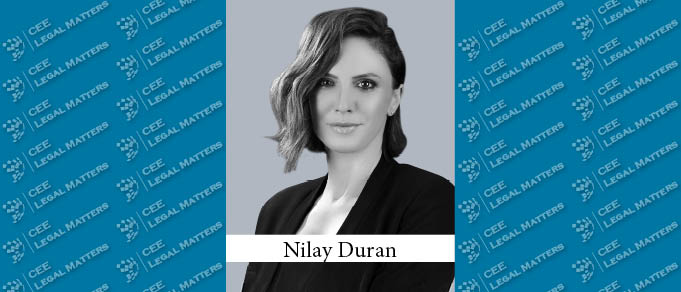A vibrant technological ecosystem, driving massive amounts of M&A transactions in Turkey and continuing the trend of 2021 well into this year, is the most important recent takeaway, according to Nazali M&A Partner Nilay Duran.
“Turkish M&A activity continues its momentum, both in terms of the number of deals and in terms of their value,” begins Duran. “We’ve seen a dramatic increase in M&A activity recently, with both inbound and outbound acquisitions.” She reports a high level of dynamism in the domestic market, with “e-commerce, and tech in general, leading the pack.”
The primary drivers of these activities are VC investments in Turkish tech start-ups, which ended up leading to a “big debate about the tech M&A sector in the country, with respect to competition law issues. Turkey is amending its competition legal framework and is calling for more powers for the competition authority,” Duran reports, sharing that a change in merger thresholds is to be expected. “These changes are aiming at the tech sector specifically, following the competition authority’s stance that the current threshold of TRY 250 million is not applicable to most such transactions,” she explains.
“Furthermore, the definition of a tech undertaking is concretized as an undertaking operating in the field of digital platforms, software, gaming software, financial technologies, biotechnologies, agricultural technologies, as well as chemical and pharma technologies and related assets,” Duran reports. “Such acquisitions are now subject to competition board approval, regardless of previously existing merger thresholds. Also, if the acquisition of a technology undertaking by any acquirers were to pass the total threshold of TRY 750 million it would be subject to mandatory filing,” she explains.
The reasoning behind such changes, according to Duran, is that the lawmakers wanted to more closely define the ambit within which the definition of a 'tech undertaking' is used. “Companies that do not fall under the definition need not adhere to these changes,” she says. Furthermore, Duran reports that the lawmakers wanted to “cover both acquisitions of start-ups that are maybe not yet commercialized, as well as major tech transactions that do not generate a lot of revenue, but lead to huge market power.” According to her, the competition authority is aiming to monitor both positive and negative competition levels more closely in this context.
“These changes are coming into force starting May 2022,” Duran reports. “This means that if a deal is not closed beforehand, and it falls within the scope of the changes, new regulatory steps must be considered.” She explains that this “insertion of a regulatory step could impact deal specifics and affect considerations, transaction timelines, as well as interim period restrictions.”
However, even with such legislative updates on the horizon, Duran reports that M&A activity in the country continues to boom. “2021 was extremely busy in this regard, with start-ups operating in gaming, proptech, fintech, and blockchain garnering immense investor attention. Hopefully, this investor appetite continues for 2022 as well,” she says.
She believes that Turkey could, thus, become an important start-up hub and that this also “lends an explanation as to the increased competition authority activity. Also, following the beginning of the war in Ukraine, Turkey has come onto many an investors’ radar – meaning that the tech sector will likely continue to grow,” Duran concludes.















